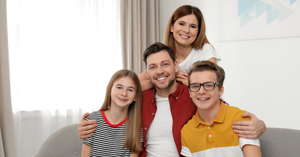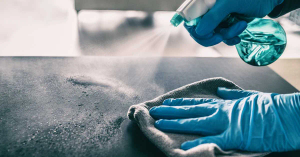Which medicines are poisonous in children?
Almost all medicines are poisonous for children if given without need or if given at a higher dose than intended. Even giving the adult dose of a required medicine may be harmful for a child. The organs and the bodies of children are not built for processing large doses of medicine. Giving the adult dose of a medicine to a child would mean that there is excessive drug in the body of the child which can harm them and even act poisonous. Some of the common medicines used day to day which may be dangerous for a child are-
- Paracetamol
- Ibuprofen
- Flu medicines
- Aspirin
- Sleeping pills
- Supplemental iron
- Blood pressure medication
- Diabetes medication
- Anti Seizure medication
- Antidepressants
- Antihistamines
- Nicotine patches
- Essential oils
How to prevent medicine poisoning in children?
It is essential that you take certain precautions with children. You should be especially careful with medications available in your house and giving your child the correct dosage. Some things to keep in mind while handling medicines in a house with children are:
- When giving medicine to your children, check the dosage, frequency and any other instructions given on the label carefully. Double or triple check all instructions before giving medicine to your child.
- If somebody else also gives medicine to your child, make sure that you keep checking with each other so that the child does not get double dosage of medicine.
- When you’re giving medicine to your child, keep it out of reach of other children in your house.
- Always confirm the dose of medicine with your doctor.
- Do not give any medicines to your child without the prescription of your doctor
- Refer to the medicines properly instead of making them sound like something special to your child
- Keep any and all medicines away from your child. Ensure that any visitors in your house do the same.
- Keep an eye on your child when visiting anybody else’s house and ensure they do not get any medicine there.
How to store medicines safely in a household with children?
The best way to make sure that any poisoning does not happen with medicine in a household of children is to store them correctly.
- Store all medicines away from children. The best way to do this would be to store them in a cupboard which is closed and at a high level out of reach of children.
- Make sure that the bottles of medicine have a child proof cap. You will need to store these bottles safely even with the safety caps though.
- Always put the cap back on after you take your medicines. Do not leave your medicines unattended.
- Keep cleaning your medicine cupboard to throw away or discard any medicines beyond the expiry date which can be especially harmful and poisonous for your child.
- Keep track of the number of medicines present in a pack so that you are aware if any pills are missing.
- Keep spoons used for taking medicine separately. Also keep them out of reach of children.
- If anybody in your house is using high dose prescription medicine it may be a good idea to keep them in a locked box or cupboard.
- Make sure to practise safe medicine storing standards since the day your baby is born to make it into a habit.








